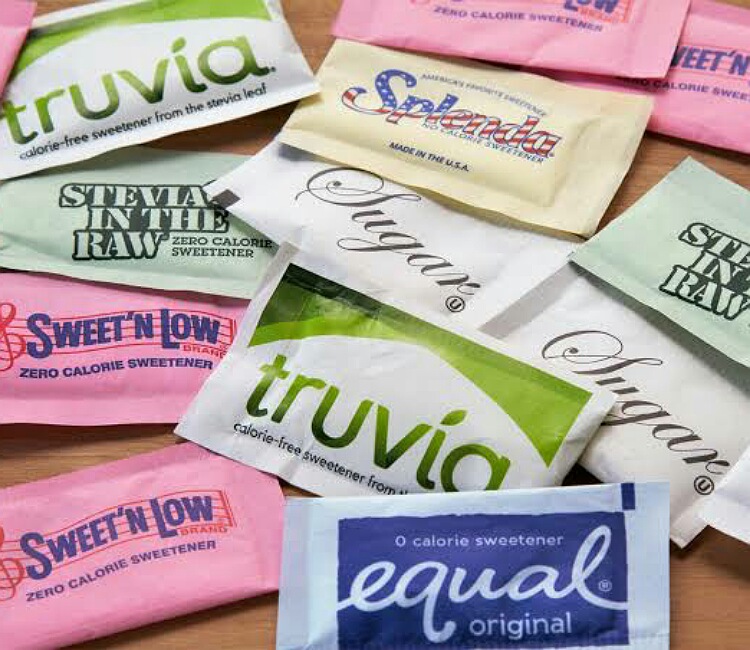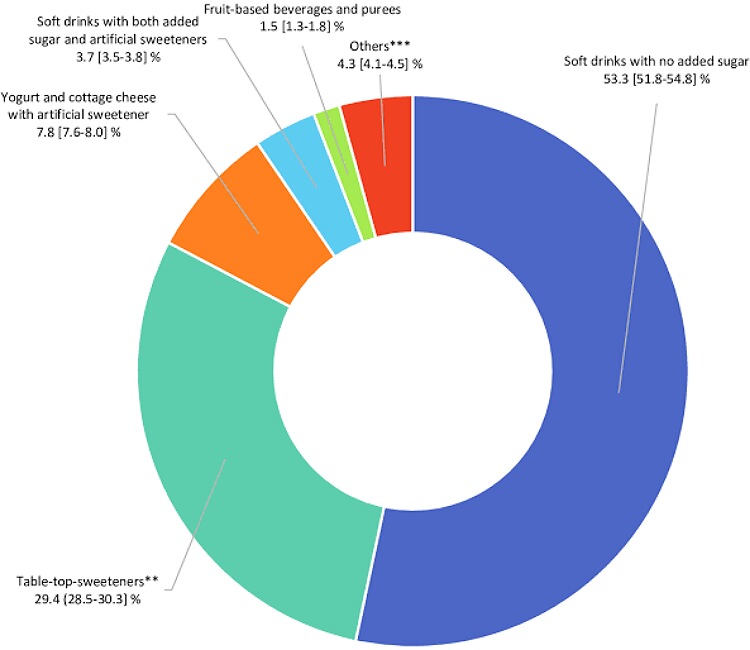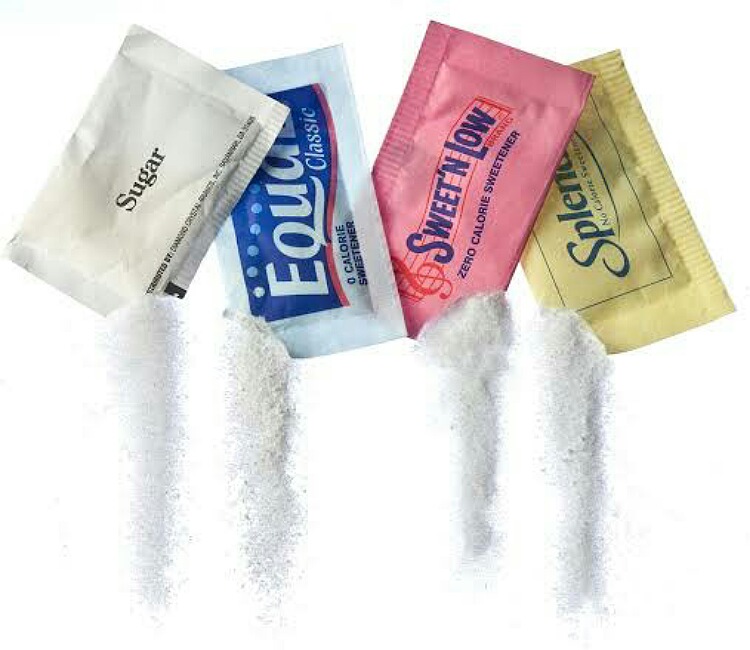Refined sugars are healthy only in moderation. Hence, in order to give sweetness to food without its ill effects, artificial sweeteners began to be used on a large scale. But its safety has always remained a matter of contention and concern. And now a new French research shows a link between these sweeteners and cardiovascular disease and cancer.
Artificial sweeteners and their safety
Refined sugars give sweetness to foods. They are simple carbs and a disaccharide. The composition is sucrose that has one molecule of monosaccharide glucose and second molecule of the monosaccharide fructose. Each gram of sugar gives 4 calories. All health organizations warn against excessive consumption of sugars. It can cause weight gain and obesity. This can go on to result in metabolic diseases. The sugars are linked to chronic body inflammation. Gut health suffers, type 2 diabetes risk increases and it can cause heart and blood vessels ailments.

In order to get the sweetness in foods without the above adverse effects, researchers came up with artificial sweeteners. These are chemicals that have many times higher sweetness than refined sugars. Hence, even in minute amounts, they give sweet taste to foods. They supposedly are safe with zero calories. But their safety has been debated ever since they were approved for human use. And now a new French study has reconfirmed that these sweeteners can increase the risk of cancer and cardiovascular diseases.
The NutriNet-Santé study: a new French study
A group of French researchers undertook a large-scale nutrition study. In this new French study, they tried to investigate whether artificial sweeteners have any association with heart diseases and cancer. The study had more than 100000 recruits. And it also quantified the amount of sweeteners (such as aspartame and sucralose) consumed each day.
Leslie Beck, dietitian and a health columnist said in an interview:
“There really is growing evidence to challenge the assumption that artificial sweeteners are metabolically inert substances. And I do think these findings should give us pause,”

Previous studies did reveal that these sweeteners can alter gut microbiome and cause blood sugar spikes. Some even linked them to weight gain. Published in the British Medical Journal, the French study had 3 groups: zero, lower and higher (77 mgs per day) consumers of sweeteners. The higher consumers were younger with higher BMI, with less exercise and more smoking.
Study findings
Those on aspartame had higher risk of stroke compared to non-consumers. And those taking acesulfame potassium and sucralose had more chances of coronary disease.
An earlier study on same data found high risk of cancer in those who used these chemical sweeteners. One of the study authors, Mathilde Touvier from the Nutritional Epidemiology Research Team at the French National Institute for Health and Medical Research said:
“It’s an important step — a new brick to the wall — regarding the weight of evidence that we would train together regarding artificial sweeteners and health,”
 WHO had analyzed 300 studies on these sweeteners and opined:
WHO had analyzed 300 studies on these sweeteners and opined:
“Studies suggest the possibility of long-term harm in the form of increased risk of obesity, Type 2 diabetes, cardiovascular diseases and mortality,”
But it added that more research is essential to confirm. Mathilde added:
“We hope that this new work will bring important evidence and help [the WHO] to revise, potentially, their opinion and regulation on artificial sweeteners,”
Read here: Non-nutritive sweeteners can cause metabolic diseases: an analysis!
Have in moderation. Occasional use of these sweeteners is low risk. Leslie rightly says:
“It is entirely possible to adjust your taste buds and come to prefer a less sweet taste,”
